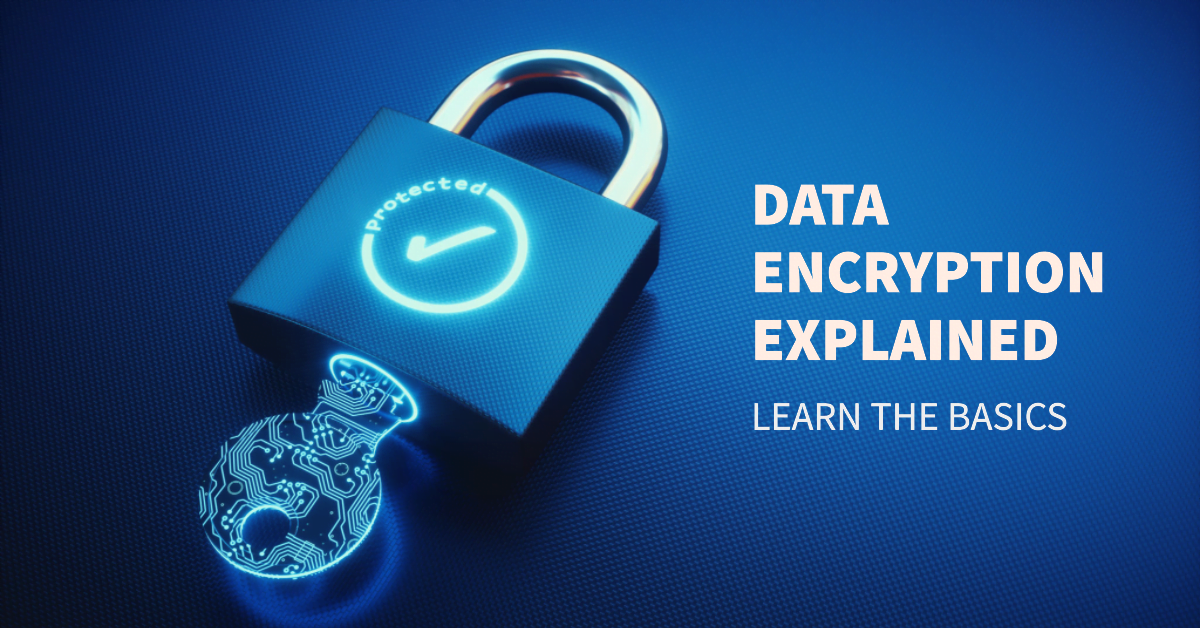
Understanding Data Encryption for SMBs: Safeguard Your Sensitive Information
Data encryption is an essential security measure for small and medium-sized businesses (SMBs) to protect their sensitive information from authorised access. We will explore the basics of data encryption and how it can help you safeguard your valuable business data.
What is Data Encryption?
Data encryption is the process of converting readable data (plaintext) into an encoded format (ciphertext) that is unreadable without the correct decryption key. The purpose of data encryption is to protect sensitive information from authorised access, tampering, or theft. When encrypted data is intercepted, it appears as a random string of characters, making it virtually impossible for an attacker to decipher without the decryption key.
Types of Data Encryption
There are two primary types of data encryption: symmetric key encryption and asymmetric key encryption.
Symmetric Key Encryption
In symmetric key encryption, the same key is used for both encryption and decryption. This method is relatively fast and efficient, making it suitable for encrypting large amounts of data. However, the key must be securely shared between the sender and receiver, which can be challenging, especially if they are not in the same location.
Asymmetric Key Encryption
Asymmetric key encryption, also known as public-key cryptography, uses two different keys: a public key for encryption and a private key for decryption. The public key can be freely distributed, while the private key must be kept secret. This method is generally slower than symmetric key encryption but provides better security due to the separation of the encryption and decryption keys.
How Data Encryption Protects Your Business
Implementing data encryption for your SMB can offer several benefits:
- Protect Sensitive Information: Encrypting your data ensures that sensitive information remains confidential, even if it falls into the wrong hands. This can help you maintain customer trust and protect your business reputation.
- Comply with Regulations: Many industries have strict data protection regulations that require businesses to implement data encryption. By using encryption, you can ensure compliance with these regulations and avoid potential fines or legal penalties.
- Prevent Data Breaches: Data breaches can have devastating consequences for SMBs, both financially and reputationally. Data encryption helps protect your data from authorised access and reduces the likelihood of a successful data breach.
- Secure Data in Transit and at Rest: Encrypting your data both when it's stored (at rest) and when it's transmitted (in transit) can help you protect it from theft, interception, or tampering.
Implementing Data Encryption for Your SMB
There are several steps you can take to implement data encryption in your SMB:
- Assess Your Data: Determine which types of data you need to encrypt, such as customer information, financial data, or intellectual property.
- Choose the Right Encryption Method: Based on your assessment, select the appropriate encryption method (symmetric or asymmetric) and algorithm for your needs.
- Implement Encryption Tools: Use encryption software or hardware solutions to encrypt your data. Many operating systems and applications offer built-in encryption features, or you can use third-party encryption tools.
- Establish Key Management Practices: Develop a secure process for managing your encryption keys, including key generation, storage, and rotation.
- Train Your Staff: Educate your employees about the importance of data encryption and the proper handling of encryption keys.
- Work with a Trusted IT Service Provider: Partnering with a reliable IT service provider, like Kwik Support, can help you implement effective data encryption solutions and provide comprehensive IT support services to keep your business data secure.
In conclusion, understanding data encryption is crucial for SMBs to protect their sensitive information and maintain customer trust. By implementing strong encryption methods and partnering with a trusted IT service provider, you can ensure the security of your valuable business data.
Additional Security Measures
While data encryption is a vital component of data protection, it's essential to complement it with other security measures for a comprehensive approach to safeguarding your sensitive information. Some additional security measures you should consider implementing include:
- Regular Data Backups: Create and maintain regular backups of your important data to minimise the risk of data loss due to hardware failure, human error, or cyberattacks. Check out Kwik Backup Data Protection as a Service for a reliable backup solution.
- Data Loss Prevention (DLP) Strategies: Implement DLP strategies to monitor and control the flow of sensitive data within your organisation. Learn more about Data Loss Prevention Strategies for SMBs.
- Secure Your Wireless Network: Ensure your wireless network is protected with strong security measures, such as robust passwords, encryption, and network segmentation. Discover how to secure your wireless network.
- Cybersecurity Awareness Training: Educate your employees about potential cyber threats, such as phishing attacks, and provide them with the necessary tools and knowledge to detect and prevent these attacks. Read more about Cybersecurity Awareness Training.
- Managed IT Services: Partner with a trusted IT service provider to proactively monitor, maintain, and support your IT infrastructure. Learn about the benefits of Managed IT Services for SMBs.
By combining data encryption with these additional security measures, you can create a robust and comprehensive data protection strategy for your SMB.
In summary, data encryption is a critical aspect of information security for small and medium-sized businesses. Understanding the basics of data encryption and implementing appropriate encryption methods can significantly enhance the protection of your sensitive business data. By combining data encryption with additional security measures and partnering with a reliable IT service provider like Kwik Support, you can ensure your business data remains secure and safeguarded against potential threats.
